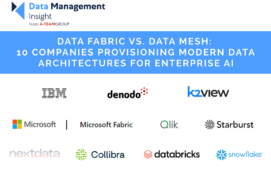Framework is addressing the reference data management challenges of private equity investment firms with a data hub and self-service reporting and analytics tool set. While private equity technology implementation lags that of other investment sectors, Framework is following the latter’s lead with a centralised approach to data that is designed to help firms navigate the changing landscape.
Paul Whapham, principal at Framework, explains: “The technology needs of the private equity investment sector are moving on. In the past, many firms implemented best-of-breed solutions for functionality such as customer relationship management, general ledger and portfolio administration, but this has become a problem as the market has changed.”
Key shifts in the market include larger allocations from institutional investors, larger funds, bigger deals and volumes of business. Whapham describes the challenges of these changes as scaling and integrating best-of-breed and other solutions. He says: “Framework addresses these problems by consolidating data from across multiple systems and allowing stakeholders in the data to use it more effectively for tasks such as regulatory and investor reporting, and to gain a better understanding of the data.”
Framework has a track record in accounting solutions for private equity investment and is evolving to offer technology components for accounting and administration, and reporting. The company also has, and is developing, an integration layer that allows Framework components to interact with installed applications. The data hub brings together siloed investment data into one database, in one standard format.
Whapham describes the benefits Framework provides as 17 years’ experience in the private equity space, a functional data management architecture that make apps part of an IT ecosystem rather that isolated solutions, and open application programming interfaces (APIs) to gather data. He adds: “From a data management perspective, we work with what clients already have, agree on where reference data is stored and who owns it, and then understand what data and meta data needs to be gathered. Typically, the outcome of using Framework is greater efficiency and reduced operational risk.”
To date, Framework has towards 20 clients and 40 employees, half cutting code in Bangalore and the other half working in London as subject matter experts, product managers and business analysts. The company’s strength is in Europe, but it is also growing presence in the Middle East and North America. Whapham concludes: “There about 2,000 organisations in the global private equity sector and about 10% of them could gain value from Framework.”
Subscribe to our newsletter




